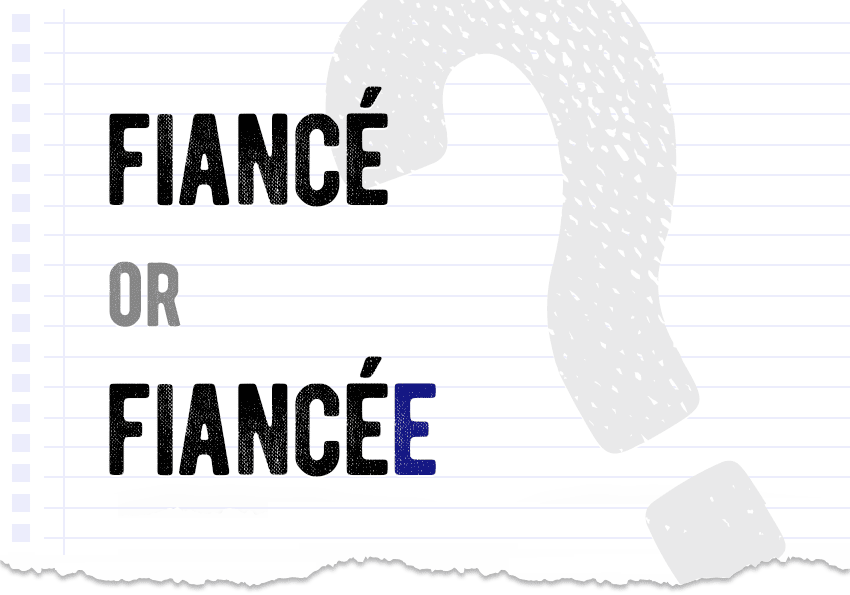Fiancé or fiancée? Which of these two forms is correct?
Fiancé or fiancée? Have you ever wondered what is the difference between these two words and which one is correct? The good news is that both forms: fiancé and fiancée are correct. Then, what is the difference? Why there are two correct ways of spelling these two words?

Fiancé or fiancée – what is the background of these two words?
Let me tell you a little bit about the provenance of these two words and their spelling. As you have already noticed there are accent marks above the letter é. They are there because both words come from French. Despite both of them are pronounced the same way, their meaning is different.
Fiancé or fiancée? So… what is the difference?
It is simple. In French, when we refere to a woman we have to add aditional e at the end of nouns and adjectives which end with this letter. Long story short fiancé refers to a man while fiancée refers to a woman. So… in this case, everything is just a matter of sex.
There is not many more examples of Frenchism of this kind, but below you can find a few more:
- protegé – protegée,
- né- née.
Remember! The word with an additional e always refers to a woman.
What are the synonymous of the words fiancé and fiancée?
Fiancé or fiancée is future spouse, a person with whom one is engaged. In different words we can replace mentioned words with the old-fashion word betrothed which can be used for both men and women.
Fiancé and fiancée? Now it is all clear! Examples in sentences
So now, you know the difference. The best way to memorise it is to look at some examples of mentioned words in context.
She went home that evening and told her fiancé the wedding was off.
The Guardian, 2 January 2020
Steve Zahn and Melissa Leo, David Simon and his assistant, the owner of the house and his pregnant fiancée, the first assistant director and the script supervisor, two stand-ins, a grip.
The Guardian, 2 May, 2010
Dr. Phil A man accused of being a “master manipulator” faces his estranged wife, former fiancée and ex-wife.
Los Angeles Times, 28 April, 2015


